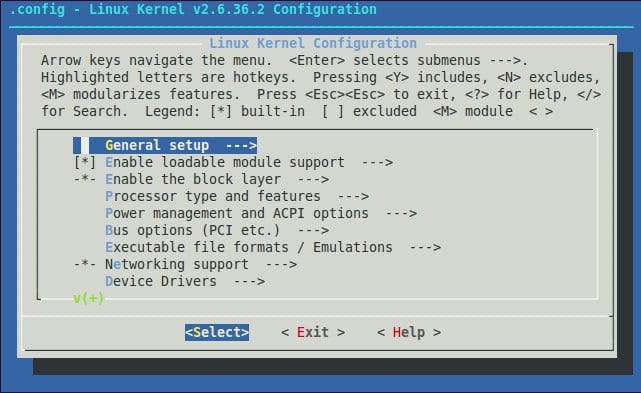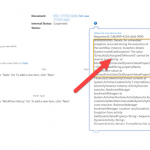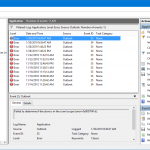Fixed: How To Fix Compilation Of Linux 2.6 Kernel Modules.
November 16, 2021
Over the past few weeks, several readers have told us that they have stumbled upon compiling a Linux 2.6 kernel module.
Recommended: Fortect
Modules
Kernels must compile differently thanregular custom applications. Earlier versions of the kernel required leavinga lot about these parameters, which are usually stored in makefiles.Although they are organized hierarchically, many redundant parametersaccumulated in children’s make files and paid for them large and rather bigdifficult to hold. Fortunately, there is an amazing methodthese things, known in medicine as kbuild, and the process of assembling external partsloadable is now fully integrated into the standard kernelConstruction mechanism. To learn more about how to compile the partsnot recommended (like all products you buy)can be found in this manual) manually view the linux / Documentation / kbuild / modules.txt file.
So let’s just look at your own makefile to see which part is called. Compile hello-1.c :
From a technical point of view, most of the first line is real.undoubtedly, new “everything” and “clean” goals are needed for cleanConvenience. You
can now compile the updated module by issuing the allow command. You should get a result similar tothe following:
Note. The 2.6 kernel introduces a new convention for identifying files:Kernel modules now have the .ko extension.(belonging to extension old.o ),it differs slightly from traditional article files. …The reason is that heand contain an additional modinfo sectionthat it is the additional information about the component that is saved. The fountainwe will see shortly what resources this is good for.
Nothing special, far enough away. It changes when you stop using it.modinfo is one of our new examples, hello-5.ko .Of
You will find many useful instructions here. Author’s work forBug reports, license information, even a descriptionThe parameters it accepts.
Additional aspects of makefiles for kernel modules:available in linux / Documentation / kbuild / makefiles.txt . A warningRead this approach and related files before starting the hack.Makefiles. This will probably save you a lot of work.

It’s time to insert the newly compiled module for this.kernel with insmod ./hello-1.ko (ignorewhatever you see on damaged kernels; this is what we intendsoon).
All modules loaded into the kernel are undoubtedly listed in / proc / modules . Go ahead and run this file so you can see itthat your module is indeed a new part of the kernel. Congratulations,Nowyou are usually the author of the Linux kernel code! When novelty wearsoff, force your kernel module to use rmmod hello-1. Take a look at / var / log / messages to see what it isThe log file of your saved equipment.
Here’s another exercise for the reader. See most of the comments abovereturn statement in init_module () ?Change the return value for all kinds of negative stuff, compile and downloadmodule a second time. What’s the matter ?
obj-m Hello-1 + =. OEverything: Reach -C / lib / modules / $ (uname -r shell) / build M = $ (PWD) Moduleclean: make -C / lib / modules / $ (uname -r shell) / build M = $ (PWD) clear Hostname: ~ / lkmpg-examples / 02-HelloWorld # makemake -C /lib/modules/2.6.11/build M = / root / lkmpg-examples / 02-HelloWorld Modulemake [1]: enter `/ usr / src / linux-2 directory.6.11 ' CC [m] /root/lkmpg-examples/02-HelloWorld/hello-1.o Building modules, level 2. MODPOST CC /root/lkmpg-examples/02-HelloWorld/hello-1.mod.o LD [M] /root/lkmpg-examples/02-HelloWorld/hello-1.komake [1]: exit the directory `/usr/src/linux-2.6.11 'Hostname: ~ / lkmpg-examples / 02-HelloWorld # Color = "# 000000"> Hostname: ~ / lkmpg-examples / 02-HelloWorld # Hostname: ~ / lkmpg-examples / 02-HelloWorld # modinfo hello-5. NSFile name: hello-5. NSLicense: GPLBy Peter Jay Saltzmanvermagic: 2.6.11 proactive PENTIUMII 4KSTACKS gcc-3.3depends on:parm: excess myintArray: An integers (Int array)parm: mystring: character (charp)parm: mylong: always integer (long)parm: myint: integer (int)parm: myshort: short integer (short)Hostname: ~ / lkmpg-examples / 02-HelloWorld # Kernel modules need to be developed a little differently than regular custom applications. We are committed to using older kernel versionsTo take care of these settings, what types of makefiles are usually stored in registered makefiles. Although they are organized hierarchically, many of them are redundant.Preserved settings in child makefiles, and also made them more difficult to maintain.Fortunately, there will be a new way of fulfilling conditions called kbuild and a process for creating a loadable external web theme.is now fully integrated into the erogenous nucleus construction mechanism. Learn more about how to assemble parts that are notPart of the formalized core (like all cases you'll find in this tutorial), the envision file linux/ Documentation / kbuild / modules.txt .
So let's take a look at the general makefile to compile the part called hello-1.c :
From a technical point of view, viewing the first line is simply necessary,“All” in “clean” targets have been added for simplicity.
Recommended: Fortect
Are you tired of your computer running slowly? Is it riddled with viruses and malware? Fear not, my friend, for Fortect is here to save the day! This powerful tool is designed to diagnose and repair all manner of Windows issues, while also boosting performance, optimizing memory, and keeping your PC running like new. So don't wait any longer - download Fortect today!
1. Download and install Fortect 2. Open the program and click "Scan" 3. Click "Repair" to start the repair process

You are now ready to compile the module called by the make command.You should probably get the following output:
Hostname: ~ / lkmpg-examples / 02-HelloWorld # makemake -C /lib/modules/2.6.11/build M = / root / lkmpg-examples / 02-HelloWorld Modulemake [1]: enter `/ usr / src / linux-2 directory.6.11 ' CC [m] /root/lkmpg-examples/02-HelloWorld/hello-1.o Construction quests, level 2. MODPOST CC /root/lkmpg-examples/02-HelloWorld/hello-1.mod.o LD [M] /root/lkmpg-examples/02-HelloWorld/hello-1.komake [1]: exit the directory `/usr/src/linux-2.6.11 'Hostname: ~ / lkmpg-examples / 02-HelloWorld #
Note that a new file naming convention is being discussed in the 2.6 kernel: parts of the kernel now have .ko Extension (instead of the old .extension) o , which makes it slightly different from regular objectsFiles. This could be because they have another .modinfo section that provides additional guidance onThe module took place. Today we will see what it really is andThis information is used.
Use modinfo hello - * .ko to find out what this information is.
Hostname: ~ / lkmpg-examples / 02-HelloWorld # modinfo hello-1.koFile name: Hello-1. NSvermagic: 2.6.11 proactive PENTIUMII 4KSTACKS gcc-3.3depends on:
Nothing special yet. This will change as soon as we involve Modinfo employees on our new products. hi-5.ko .
Hostname: ~ / lkmpg-examples / 02-HelloWorld # modinfo hello-5. NSFile name: hello-5. NSLicense: GPLBy Peter Jay Saltzmanvermagic: 2.6.11 proactive PENTIUMII 4KSTACKS gcc-3.3depends on:parm: myintArray: array of integers (array relative to int)parm: mystring: chain mother nature (charp)parm: mylong: long integerparm: myint: integer (int)parm: myshort: short integer (short)hostname: ~ / lkmpg-examples / 02-HelloWorld #
You will find a lot of useful information here. A chain of error messages,License information, including a specific brief description of the parameters accepted by this task.
More information on the makefiles available for kernel modules can be found in linux / Documentation / kbuild / makefiles.txt .Make sure you read this along with the related files, nbefore you start cracking makefiles.This will probably save you a lot of work.
It's time to add the newly compiled module with insmod ./hello-1.ko. to be inserted into the kernel(Ignore whatever you see on impure cores; we'll get back to that shortly).
All components loaded into the kernel are placed in / proc / modules .Also keep looking at this file to find out which module your module is actually linked to with a part of the kernel.Congratulations, you are now the author of the Linux kernel code! When a great idea fades awayRemove the module from my kernel using rmmod hello-1. Check it out / var / log / messages only if you want to see that it has been logged to help you with the syslog file.
Here's another exercise for the reader. Check out this quick overview of return instructions for. TO init_module () ? Replace the return value with a negative value, recompile and reload the component.What's the matter ?
obj-m + = hello-1.oEverything:make -C / lib / modules / $ (uname -r shell) / build M = $ (PWD) -C Moduleclean:make / lib / modules / $ (uname -r shell) / build M = $ (PWD) clean

Download this software and fix your PC in minutes. Modify this makefile to replace each occurrence in the helloWorld and kernelRead directions with the labels of the modules you want to create.Compile the modules by creating them in the directory where the web template modules are located.Now become the superuser to type.
Step 1. Download the exact source code.Step 2: extract the source code.Step 3: Install the required packages.Step nine: configure the kernel.Step 5: build the kernel.Step 6. Update the bootloader (optional)Step six: reboot and check your kernel version.
hello.c get C code.Add the following original c prefix:Save the file.Save and close the file.Compile the hello.c course:Become root (use su or even sudo) and download the component:Make sure the module is loaded:See the information in the file / var / log / message:
커널 모듈 Linux 2 6 컴파일
Compilazione Del Modulo Del Kernel Linux 2 6
Kompilowanie Modulu Jadra Linux 2 6
Compileren Van Kernelmodule Linux 2 6
Kompilyaciya Modulya Yadra Linux 2 6
Compilando Modulo Do Kernel Linux 2 6
Compilar El Modulo Del Kernel Linux 2 6
Kompilieren Des Kernelmoduls Linux 2 6
Kompilering Av Karnmodul Linux 2 6




